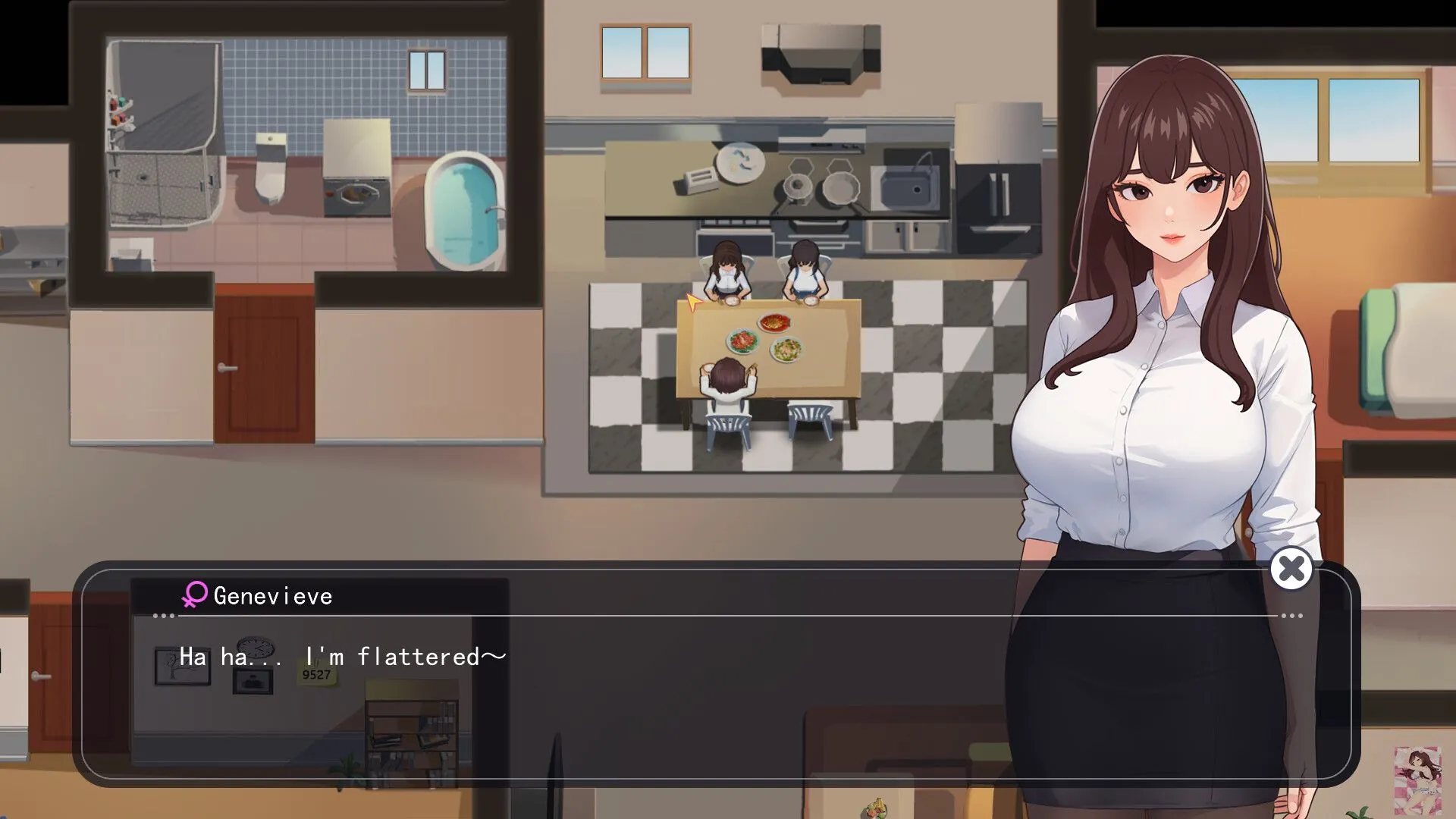
Radiant
Play Radiant
Radiant review
Unlocking the Narrative Mechanics and Player Engagement Strategies
Radiant redefines interactive storytelling through its unique blend of character-driven narratives and strategic gameplay elements. This analysis explores how the game balances player agency with rich worldbuilding, offering insights into its success within the visual novel genre. We’ll examine key systems that make Radiant stand out in adult-oriented gaming experiences while maintaining artistic integrity.
Core Gameplay Systems and Narrative Integration
Dual Timeline Mechanics and Player Impact
Picture this: You’re sipping coffee, trying to charm a sharp-tongued diplomat in Radiant, only to realize you accidentally insulted their dead grandmother three timelines ago. 🕰️💥 That’s the beauty of the game’s dual timeline mechanics—a system where your past and present choices collide to shape relationships. Every flirtatious wink or shady lie doesn’t just affect the moment; it ripples across time, rewriting how characters perceive you.
Here’s how it works: You toggle between two timelines—Past Influence (building foundations for relationships) and Present Impact (managing immediate consequences). Let’s say you sabotage a rival in the past to gain political leverage. Fast-forward to the present, and suddenly, that same rival distrusts your every move, locking you out of crucial alliances. 🕵️♂️ But here’s the kicker: Radiant lets you revisit past decisions mid-scene, creating butterfly effects that force you to strategize like a chessmaster.
Pro Tip: Always check how your past actions altered character “memory logs” before committing to big choices. A small apology in the past could turn a mortal enemy into a reluctant ally!
Take my first playthrough: I ignored a childhood friend’s plea for help in the past timeline, focusing instead on climbing the social ladder. By the present, that friend had become a vengeful antagonist, leaking my secrets to the press. 😱 On my second run, I prioritized loyalty over ambition, which unlocked hidden dialogue options and a surprise alliance during a political coup. That’s interactive narrative design at its finest—your decisions aren’t just checkboxes; they’re living threads in a constantly evolving tapestry.
| Past Action | Present Consequence | Relationship Impact |
|---|---|---|
| Defended a friend from bullies | Gained a loyal ally in court | +40 Trust |
| Stole a rival’s heirloom | Triggered a smear campaign | -30 Credibility |
| Shared secret intel | Unlocked blackmail options | +25 Influence |
Social Credibility Systems in Character Development
Ever tried convincing a room full of nobles you’re royalty… while wearing pajamas? 👑💤 In Radiant, your social credibility score determines whether you’re treated like a visionary or a village fool. This isn’t just a popularity contest—it’s a razor-sharp social strategy mechanic that affects everything from marriage proposals to coup outcomes.
Your credibility fluctuates based on three pillars:
– Consistency (Do your actions match your words?)
– Reputation (What gossip says about you)
– Appearance (How your outfits and demeanor read)
Let’s break this down. During a masquerade ball, I once wore a “rebellious” outfit that clashed with my “loyalist” persona. The result? My credibility tanked, and a key informant refused to share intel, derailing my entire espionage subplot. 🎭💔 But when I aligned my pirate-themed attire with a “rogue diplomat” persona, I gained access to underground networks—proving character customization impact isn’t just cosmetic.
| Credibility Tier | Narrative Access | Political Power |
|---|---|---|
| 0-30 (Pariah) | Locked out of royal events | Can’t propose laws |
| 31-70 (Neutral) | Basic alliances | Minor policy changes |
| 71-100 (Icon) | Control story endings | Overthrow governments |
Strategic Resource Management in Romantic Subplots
Love in Radiant isn’t just roses and poetry—it’s a high-stakes resource game. 💘⚖️ The relationship progression system here demands you balance emotional investment with political gain. Want to romance the brooding spy captain? Better stockpile “covert intel” tokens by completing stealth missions. Eyeing the charismatic heir? Save up “social capital” earned from hosting flawless salons.
But here’s where dynamic story branching gets wild: Resources spent on one romance deplete options for others. In one playthrough, I blew all my “artistic inspiration” tokens on serenading a painter, only to realize I needed those same resources to befriend a rebel leader later. The painter’s love story fizzled when the rebels stormed the palace… and executed him. 😬
Personal Insight: Treat romantic resources like a limited-edition currency. Hoard “diplomatic favor” for power players, but sprinkle “personal charm” to keep options open.
And let’s talk about gossip—the nuclear option of social strategy mechanics. Leak a rival’s scandal to boost your credibility, but risk them retaliating with your secrets. During a tea party, I “accidentally” revealed a duke’s tax evasion, skyrocketing my influence. But later, his spurned lover exposed my affair with a knight, nuking three relationships at once. 💥🗡️
So, what’s the takeaway? Radiant forces you to play 4D chess with your heart and your head. Every flirtation, every gift, every whispered secret is a move in a grander game—one where there’s no “right” choice, only consequences that shape your unique story. 🏰✨
Now go forth, you romantic tactician—just remember to check those timelines twice.
Radiant demonstrates how mature themes can be handled with narrative sophistication, offering players complex systems that reward strategic thinking. Its success lies in merging historical inspiration with modern gameplay sensibilities. For those interested in narrative-driven experiences, Radiant presents a compelling case study in interactive storytelling evolution. Explore official channels for gameplay updates and community discussions.






























